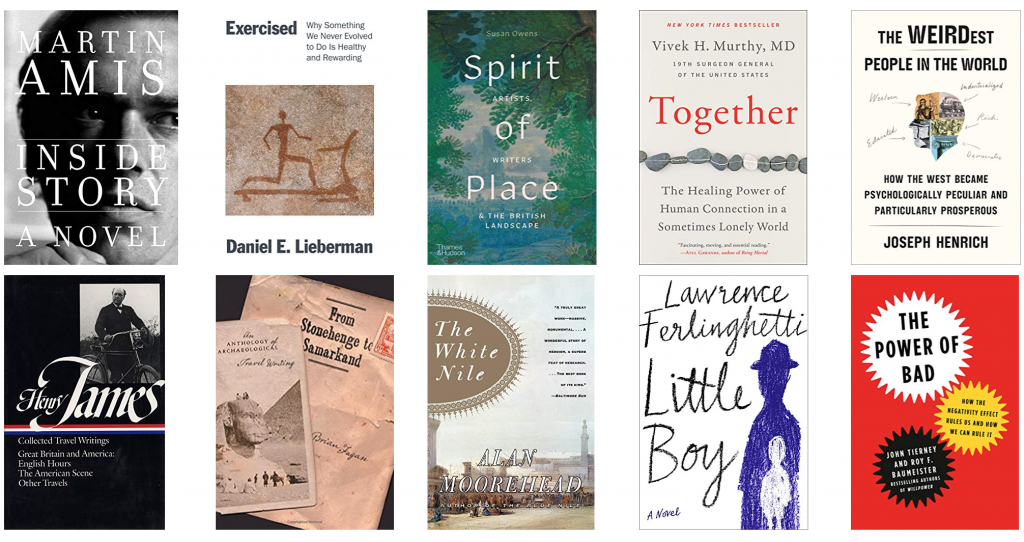
Every year more nonfiction books seem to be published, while at the same time there is less time to read them. Arguably the culture of the book is mostly gone, displaced by social media. As Michael Kimmage wrote this year: ‘the Euro-American textual community is no more because the because the relationship of even the most educated American readers to expository prose, to literature, history and philosophy, has melted into the blinking textual communities of the internet’ (The Abandonment of the West: The History of an Idea in American Foreign Policy, Basic Books, 2020, p.309). I completed a PhD in English the year before Facebook was made available to the world. I was lucky. I was not distracted by the flotsam and jetsam of the internet. In 2000 I bought a first edition of Saul Bellow’s last book Ravelstein, and admired the eponymous protagonist of that book. He is a Chicago University professor whose apartment is full of art and books and he wanders around in a silk dressing gown listening to baroque music. He talks and communicates constantly with a rich fabric of long dead writers and thinkers, from Plato to Rousseau. I wonder if someone like the fictional Ravelstein could exist as easily in 2020 as he was able to, at least imaginatively, in 2000? If we are infovores, constantly lured to the next information feeding ground by smartphones, updates, and newsfeeds, then ‘single-tasking’ by sitting down and reading a book for an hour or two without interruption is less common than it used to be. Over time this has consequences.
That said, it is still in reading entire books that I find some of my richest experiences. Here are some of the best I’ve encountered in 2020. (Most of these were published this year but to show I’m not entirely prey to the presentism of our contemporary culture I’ve included one from 1905 and one from 1960.)
1. The Power of Bad: How the Negativity Effect Rules Us and How We Can Rule It (2019) – Roy Baumeister and John Tierney
Human thinking is constantly skewed towards the negative. We are hurt more by insults and slights than we are elevated by praise, and we attend with more concentration to bad news than good. The authors do a good job of outlining the different realms of human life in which this all plays out, from relationships to work life to raising children and consuming media. In terms of one’s media diet the book suggests that we be more careful to curate a current affairs diet that includes a greater number of good news stories than bad – I would have thought this was almost impossible considering that most journalists and news organisations are both prey to the negativity bias, both naturally and in a financially incentivized way (they’ll get more eyes on the page by being ‘merchants of bad’). Not the heights of lapidary prose style, but deals with a very important facet of being human and the book is a therapeutic read for us all.
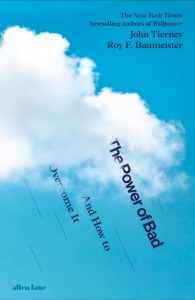
2. Exercised: Why Something We Never Evolved to Do Is Healthy and Rewarding (2020) – Daniel Lieberman
The latest book from Harvard University’s barefoot professor of human evolutionary biology. Lieberman is one of the few scientists who can write very well. He shows that we evolved to run, yes, but we also evolved to rest whenever we could. The best book I’ve ever read to take a big picture perspective on exercise.
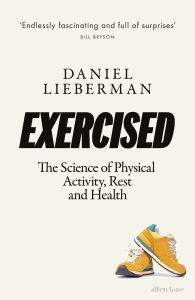
3. Spirit of Place: Artists, Writers and the British Landscape (2020) – Susan Owens
An enjoyable journey through visual culture of England over the past few hundred years as it pertains to representing the natural landscape. There are references to literature however the author’s strength is really her grasp of the artistic tradition in drawing and painting. Its only in the 1600s that things start to get really interesting culturally (at least from my reading and perspective), and from this point onwards I discovered many paintings and artists who I was unfamiliar with and enjoyed discovering.
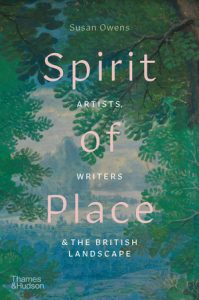
4. The Weirdest People in the World: How the West Became Psychologically Peculiar and Particularly Prosperous (2020) – Joseph Henrich
A landmark book advancing our understanding of how Western cultures developed, particularly in the last one thousand years, to make Westerners unusually patient, individualistic, impersonally prosocial and nonconforming. Cross cultural surveys and experiments in psychology and behavioural economics have given us large amounts of empirical data to show that there really are consistent and deep differences between the psychology of Westerners and everybody else (no this isn’t a dichotomy, this is a spectrum with North-Western Europeans and their descendants at one extreme end of the spectrum). This book shows how we became so wealthy and able to run relatively less corrupt nation states, but also how we have become lonely and unhappy in multiple ways. A sweeping overview of modern civilisation, showing what we’ve gained and what we’ve lost as we modernised.
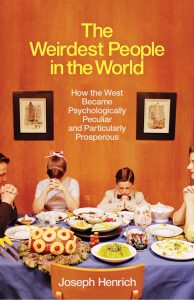
5. From Stonehenge to Samarkand: An Anthology of Archaeological Travel Writing (2006) – Brian Fagan
I love this book! It opened my eyes to the fact that at the start of the nineteenth century some English travellers were able to have an experience of ancient Greece and its remains that was evocative as the experience I had a few years ago in the ruins of Angkor. Vignettes from exploring Egyptians ruins at Luxor in the ninteenth century at midnight under a full moon transport the reader to times and places where remains of the ancient world had an ambience most of us will never be able to experience in our lifetimes. Thanks Brian Fagan. I’m glad there exist academic archaeologists to this day who understand the importance of appreciating the mystery and the spirit of the human past in certain silent and ancient places on the earth.
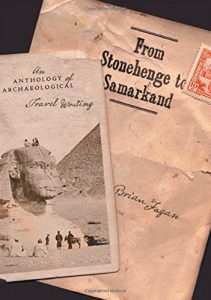
6. English Hours: A Portrait of a Country (1905) – Henry James
The most sensitive painter of affectionate verbal impressions of traditional England in all prose literature. At least in my reading history. James’ manner of writing about London or an old manor house in the countryside is so full of enthusiasm and reflective love. Reading his travel writing is like entering a time machine and peeping through the window into a different world.
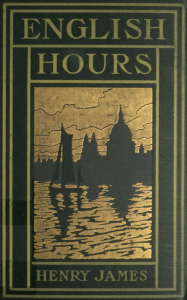
7. The White Nile (1960) – Alan Moorehead
One of my favourite books by an Australian author is actually an extended narrative of mostly Englishmen exploring what is today Kenya, Uganda, South Sudan and Sudan more than 150 years ago. This was published in 1960 and the author travelled through these regions, starting in Zanzibar. A compelling and exciting work of narrative history.
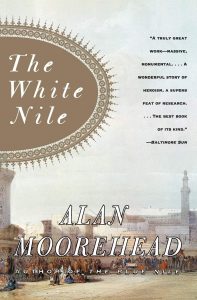
Before I leave the subject of exploration…
2020 has been, of course, the year of a global pandemic which is, as I write, killing about one per cent of the many millions of people it is infecting. I’ve been privileged to be in Western Australia where prompt closing of the borders meant life has continued largely unchanged. I’ve had a lifelong love of exploring the cultural and natural heritage of the planet and despite not being able to travel I have done plenty of travelling in my mind. Three resources have helped with this, the first is a book and the second two are lecture series. Firstly, The Great Explorers (Hanbury-Tenison, Robin., Thames & Hudson, 2010). This book is a series of brief biographies of some of the most intrepid explorers from the last approximately 600 years of human history. What makes this book so compelling is that many of the entries were written by contemporary explorers associated with London’s Royal Geographical Society, and who have more than an academic interest in their subjects. Secondly, Plant Science: An Introduction to Botany by Kleier, Catherine (The Great Courses, 2018). If you want to be an explorer of the planet you need to understand some basic botany. Although the presenter, Catherine Kleier, has a habit of being enthusiastic and happy on camera almost constantly (slightly exhausting), this course quickly covers some essential knowledge. And finally, The World’s Greatest Geological Wonders: 36 Spectacular Sites (The Great Courses: 36 Lectures, 6 DVDs and the Course Guidebook 2013): If you ever thought geology was boring you should take this journey through 36 different places, from acid lakes in Java, to huge tides in the Bay of Fundy, to the craters of the moon. If you’re going to be an explorer you need to know a little about the planet’s geology and Michael Wysession is a perfect guide.
8. Little Boy: A Novel (2019) – Lawrence Ferlinghetti
A masterpiece of autobiography and breathless poetic free-form babbling. Thank you Monsieur Ferlinghetti for the wildest ride of philosophical and artistic musings I have encountered in 2020. A joy to read. A line runs from Emerson, to Thoreau, to Whitman to Ferlinghetti – they are not ‘poets of loss’ they are the great Yea-sayers.
Happy 100 years on the blue and green orb to an elder statesman of American letters!
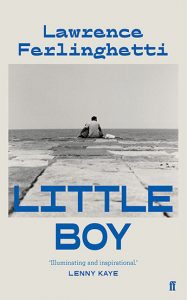
9. Inside Story: A Novel (2020) – Martin Amis
This is, reportedly, Amis’ last book. He subtitles it ‘a novel’, but its basically his second volume of autobiography with a few novelistic twists thrown in. I first got into Amis’ novels in my early twenties. Years later and these days I sometimes now get the feeling that Amis’ perspective is limited for being so metropolitan and writerly. His world seems to have always and ever been urban and highly educated. I miss a sense that this planet is full of people and plants and animals who do not assume London or New York as the centre of the universe. Also I miss a sense of Billy Collins-like humility often – he seems sternly confident that his life has been a great success, and so have the lives of his coterie of highly articulate and well known buddies, such as ‘the Hitch’ and Saul Bellow. Its also quite a rambling and formless book – as is life of course, and very long at well over five hundred pages. Its as though we’re privy to his personal diaries with their recurrent obsession with the girlfriends of his past and with his dark interest in massacres in history. With these reservations in place, the author is also very often laugh-out-loud funny, highly eloquent and sometimes memorably wise. So good company more or less. Although I find that Amis lacks an earned reverence for the biosphere, he remains perhaps the greatest prose stylist in contemporary English letters, and one of the most probingly funny commentators on metropolitan human life.
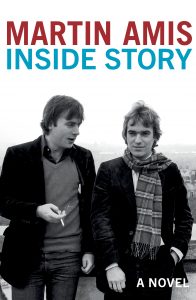
Before I leave the book, a couple of quotes. In the first Amis is at an academic conference in Israel on the fiction of Saul Bellow: …”You know, Bellow calls himself a comic novelist. And this isn’t the setting for a comic novelist, is it. They’re all structuralists and semiologists and neo-Marxists. And dogged careerists. And they haven’t forced a smile in years” (p.72). The difference between career academics and writers rings true to me, having known a few of both. Elsewhere Amis makes a perspicacious comment on the theme that Baumeister’s earlier mentioned book The Power of Bad analyses at much greater length: He speaks of ‘the intellectual glamour of gloom. The idea that sullen pessimism is a mark of high seriousness has helped create an organic (perhaps now hereditary) resistance to the affirmative and a rivalrous attraction to its opposite – the snobbery of one-downmanship’ (p.99). I’m sure we’ve all witnessed conversations among clever people that devolve into games of one-downmanship.
Many of the author’s friends and family are lost in the course of this book. And as a reader you get a sense that, as Shakespeare said, ‘yellow leaves, or none, or few, do hang/ Upon those boughs’. And yet although you can see grey sky through bare ruined choirs, I can report that Amis’ half century-long war against cliche still bears fruit.
10. Together: Loneliness, Health & What Happens When We Find Connection (2020) – Vivek Murthy
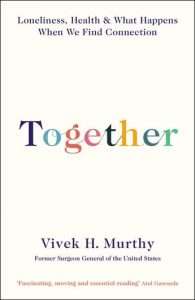
The core of this book is the notion that humans evolved to live in social groups with rich, fulfilling human relationships, however in the developed West we often live in comparatively socially isolated situations, and loneliness is rife and destructive. Some of the solutions proffered include mayors who make ‘kindness contagious’ in their local towns through focusing on enhancing social networks, and Australian men’s sheds who create a space for comradeship as well as activity. Andrew Leigh’s 2020 book Reconnected: A Community builder’s handbook (LaTrobe University Press) is a good adjunct to this book to give a more Australian perspective, but Together is the better and more philosophical of the two books ultimately. Neither author writes memorably graceful prose, but the content is worth perusing at a time in history when we are suffering a loneliness crisis. Also worth a look on the same theme is The Lonely Century: Coming Together in a World That’s Pulling Apart (2020) by Noreena Hertz.